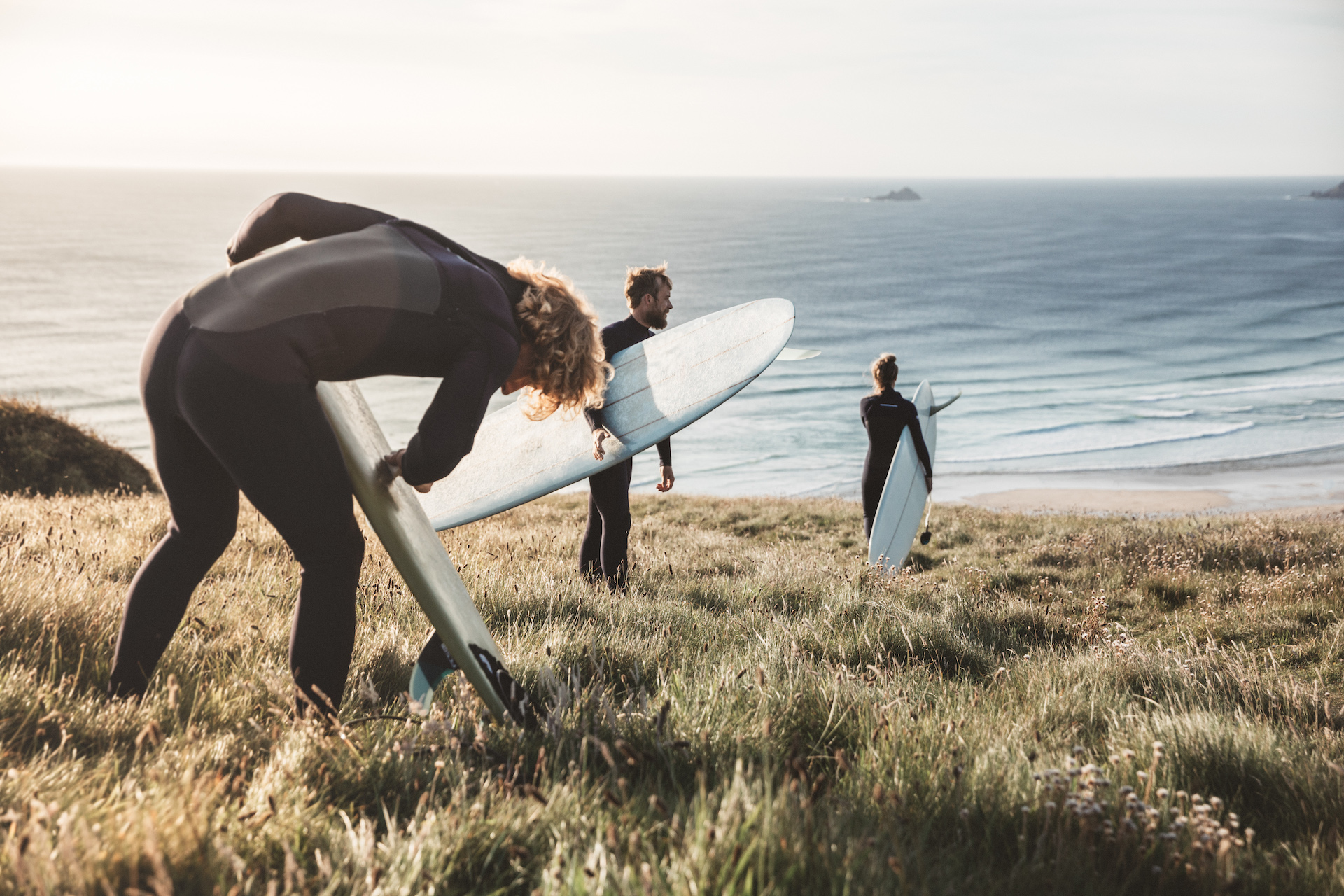
- HOME
- CULTURE
Green Heroes: Tom Kay, founder of Finisterre
'It’s not about maintaining the status quo, it’s about making the world a better place'
By | 3 years ago
Sustainability has been at the heart of Cornish surfing and outdoors brand Finisterre since it was started in 2003. Now a certified B Corp, its founder, Tom Kay, remains committed to pushing towards an ever-greener future for the brand and its dedicated customers.
He speaks to Amy Wakeham about what being a B Corp means to Finisterre, team surfing on Tuesdays, why ‘sustainable’ is an over-used word, and always being compared to like-minded brand Patagonia.
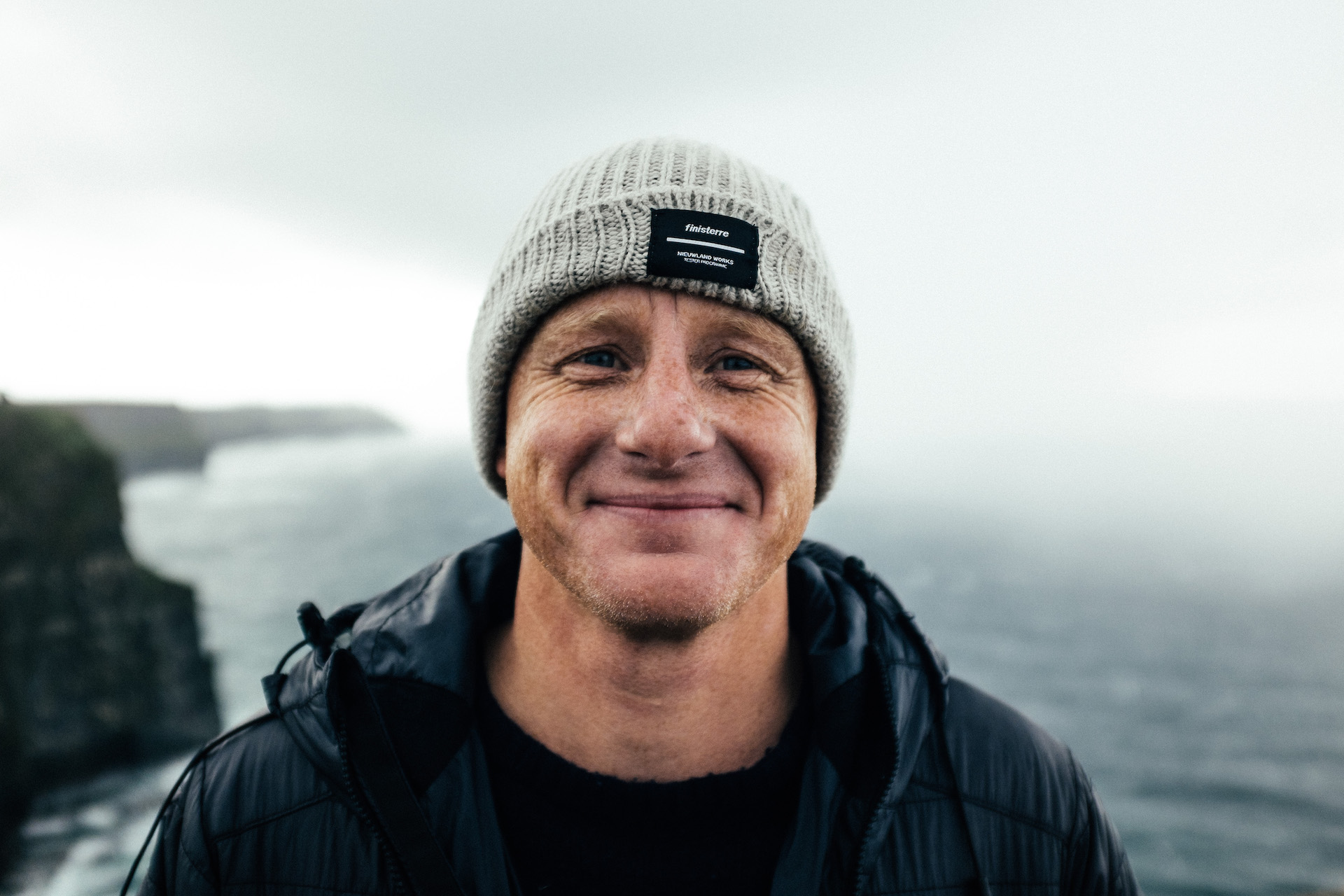
Tom Kay, founder of Finisterre
When was your green lightbulb moment?
My journey to activism actually began when I started Finisterre. I was working in London as a chartered surveyor, and I realised I had to build something that represented my passions. And so I decided to start a brand and call it Finisterre, which means the ends of the earth; land’s end. I wanted to make a brand that was wrapped up in my relationship with the sea, and one that had a purpose. I was also aware of the environmental damage going on in the world, and I wanted to put that at the heart of the brand as well.
What green business practices are you most proud of at Finisterre?
We’re B Corp-certified, which we achieved three and a half years ago now. We always had that ethos in the business from the very beginning, but it was very important to have independent verification of what we were doing as a company. Of course, we don’t have all the answers and we could do better on some things like better business practice, better products, better traceability, better innovation, but it’s a journey. And the B Corp philosophy fits in with that nicely, as it’s about improving your score and covering everything from products to your headquarter’s footprint, to the team’s individual footprints, to culture, to governance to everything else. It’s something that we’re very proud of and we work really hard at.
We also put a lot of cultural things in place to remind people of why we’re here as a business: to connect people with the sea. On Tuesdays we start work at 10am and everyone goes surfing or swimming or paddleboarding beforehand. And then that ethos trickles down into our products, like our swimwear made from discarded fishing nets and the bio rubber in our wetsuits.
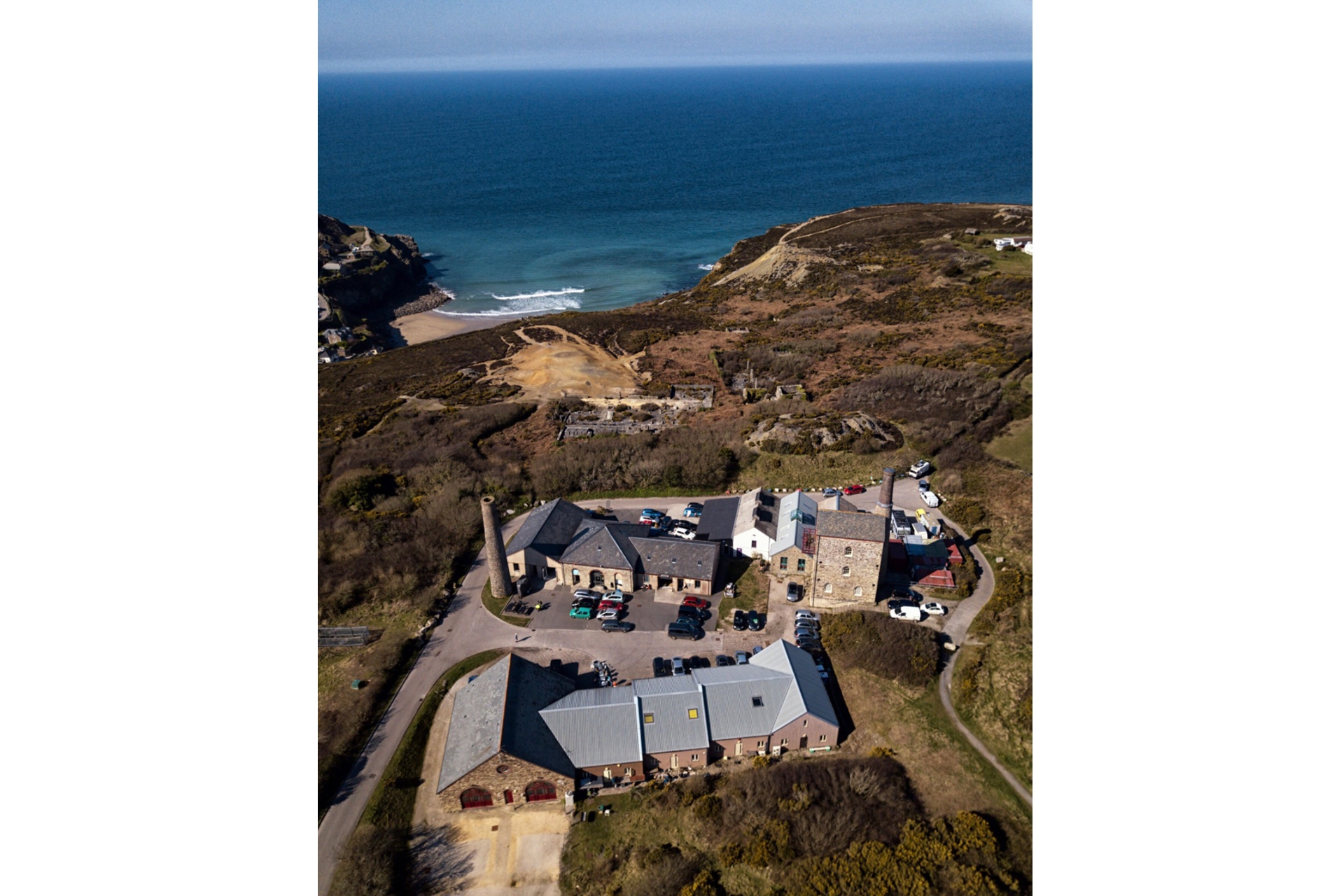
The FInisterre HQ in St Agnes, Cornwall
What areas could Finisterre work on in terms of sustainability?
I don’t think sustainability is a very good word as it’s been overused and killed a bit. I think we have to be more than sustainable: we have to be regenerative and restorative. It’s not about maintaining the status quo, it’s about making the world a better place.
With that attitude in mind, there’s loads of things we can improve on, from being carbon neutral by 2030, to the traceability of our supply chain, to microfibres in our products, to the culture in the head office. We’re on a journey to constantly improve ourselves.
Can producing new things ever really be called sustainable?
People will always need stuff, although they don’t need as much as they think they need. The longest lasting product is the most sustainable, so if you employ a circular business model, take a recycled or recyclable material and you make it into a product that will last as long as possible, and then help the customer to look after it – we have repair stations in our stores – and at the end you take it back and remake it into a new product, that kind of consumption is okay. And we’re hopefully moving towards that, although it’s hard work as there’s so much price competition around from brands who are not doing that. People will always need stuff, but it’s about making sure you’re buying from brands that are doing things you’re happy with.
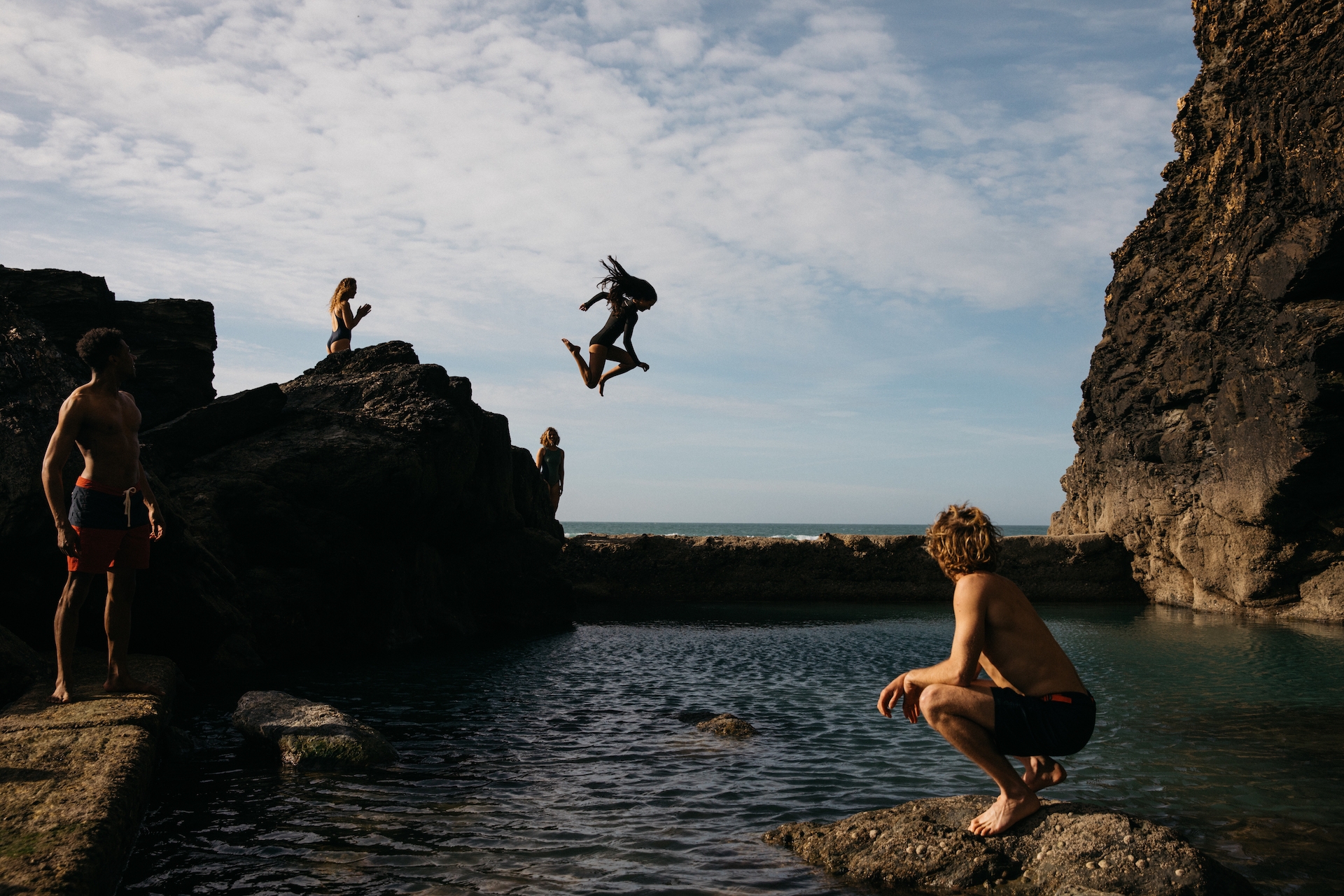
Do you feel positive about a sustainable future?
You’ve got to go into these things with a bit of hope. I think I’m an optimistic realist or a realistic optimist, and I do believe in the power of the human spirit and our ability to make change happen. But at the same time you’ve got to drive change, and not just expect it to happen. You’ve got to be really active in asking for the type of change you want to see in the world, and making sure it’s brought about. I’m hopeful about our ability to turn things around from where they are at the minute.
You’re often called ‘the UK’s answer to Patagonia’. How do you feel about this?
I love Patagonia, it’s an amazing brand and leader, and I know the team there pretty well. That’s the thing about a circular economy: there’s a shared, collaborative approach, and you invite people in and ask them for help. We talk quite a lot and share ideas, and it’s a great brand to be compared to.
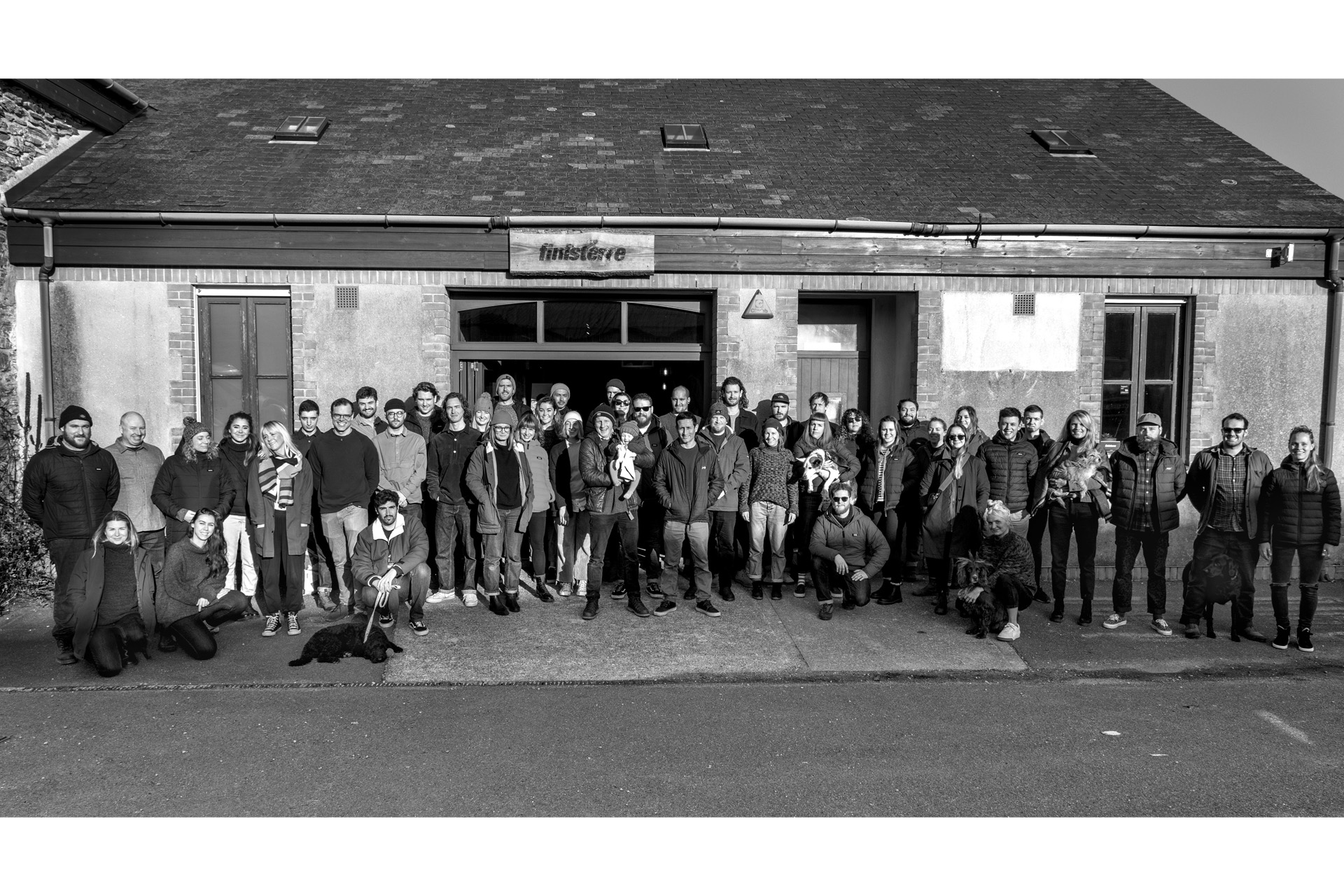
The Finisterre team outside the Cornwall HQ
What’s your top advice for brands wanting to become more sustainable?
Just get on with it. Just try stuff, and be brave and honest about the fact that it’s hard. If you’re going to do something different or to try to make a change it’s going to be hard work. You need to have a conviction about what it is you’re doing and why you’re doing it. I always say to people, ‘why wouldn’t you want to become B Corp-certified?’ And they don’t usually have a good answer. Just start somewhere.
What Is Sustainable Tourism? And is it Enough?



